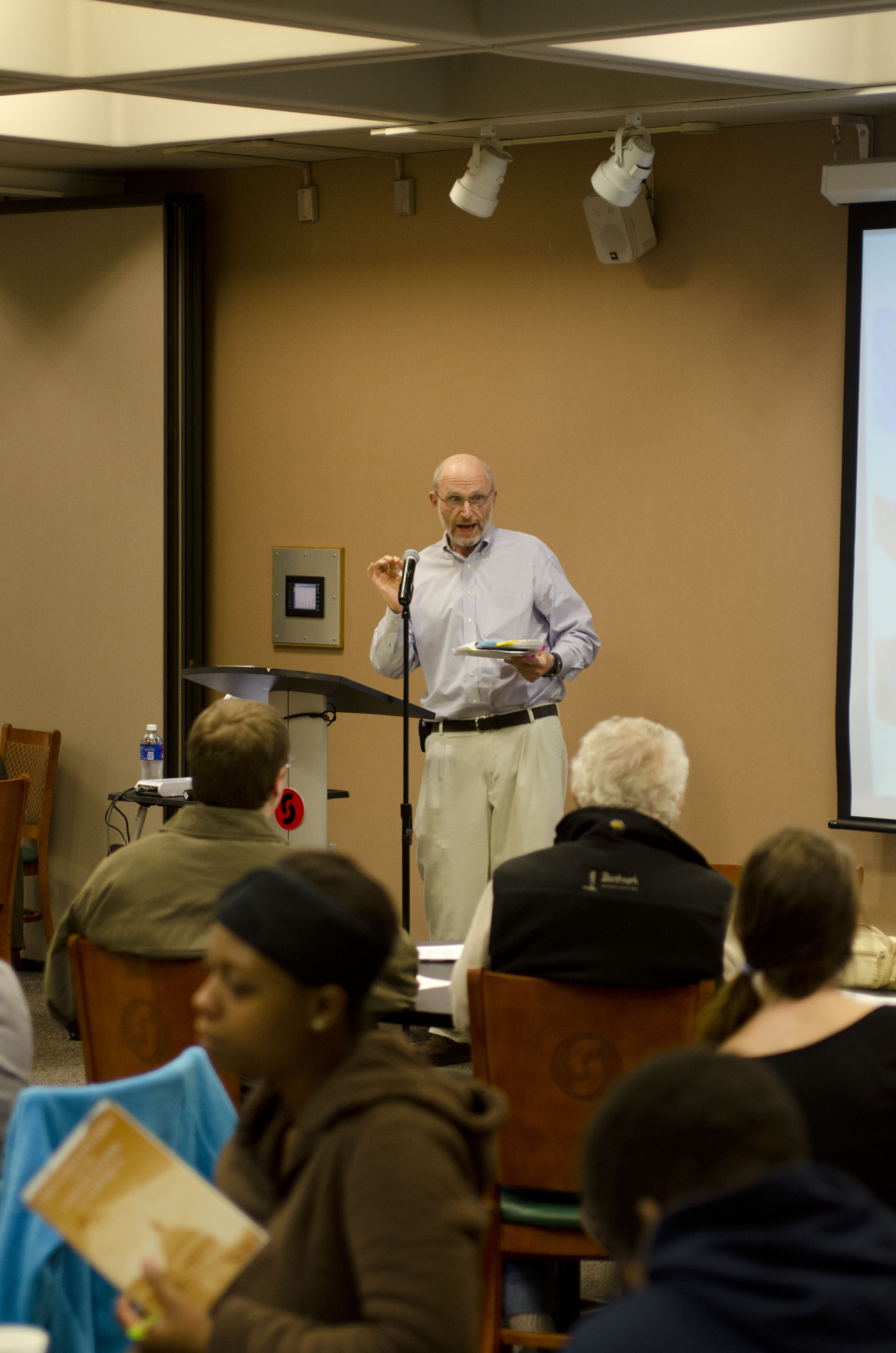On Wednesday, September 17, Richard Saphire, retired Law professor, talked about Constitution Day,
and the impact of the Ohio Constitutional Modernization Commission.
Saphire started the event with a brief trivia session on the United States Constitution, as well as the Ohio Constitution.
“I want to talk about the relationship between federal and state constitution,” Saphire said. “And modernizing the Ohio Constitution.”
Constitution Day commemorates the signing of the U.S. Constitution. In 1787, the U.S. Constitution was drafted. Since then, it has been amended 17 times, not including the Bill of Rights, within a span of 200 years. Saphire engaged with his audience by asking what the purpose is for the Constitution.
“What is the function of the Constitution?” Saphire said.
“A way to unify all the state governments,” an audience member said.
Saphire responded back saying it’s a way to provide a document of unification. He also wanted to know the reason why we have state constitutions.
A student from the crowd responded with, “it provides a framework.”
Saphire said it’s not just about the framework or
how the government is organized, it constitutes the law. He followed with the question, “How many of you are aware that Ohio has its own constitution?”
The Ohio Constitution traces back to the Ordinance of 1787, otherwise known as the Northwest Ordinance.
The Ordinance, itself, had provisions that acted as if it were a constitution for the Northwest Territory.
“Ohio carried out rights that we often associate with the Constitution, including for example, the right to religious freedom and the right to trial by jury,” Saphire said.
The State Constitution was formed in Chillicothe, Ohio in 1802.
“What this document did was, establish a framework of the government for the new state of Ohio,” Saphire said.
He said by the middle 1800s, there was dissatisfaction going on within the state. Fifty years later, there was a convention held to talk about the possible changes in Ohio’s Constitution. He said within a year of the meeting, revisions to the document were drafted.
One important aspect of the new changes was an amendment that stated that every 20 years the people of Ohio would have the opportunity call a constitutional convention.
Saphire is a member of the Ohio Constitutional Modernization Commission. He said the committee discusses whether Ohio’s current system should change, and if so, how.
The committees are made up of six people from each party and house, and twenty public members.
Saphire’s committee deals with the Bill of Rights and the Judicial Branch.
“We deal with the criminal justice system, and provisions on voting rights, gun rights and worship rights,” Saphire said.
Whether there is a significant issue, the committee creates a “road map,” also know as an agenda. They decide on what is worth taking the time to revise, and what is realistic for approval from legislature.
Saphire’s personal goal within the committee
is staying involved with social issues, while making a contribution to the community
“This is a really important opportunity to make a change for the better,” Saphire said. “It’s a big commitment and sacrifice, but it’s important to take on responsibility for the state.”

